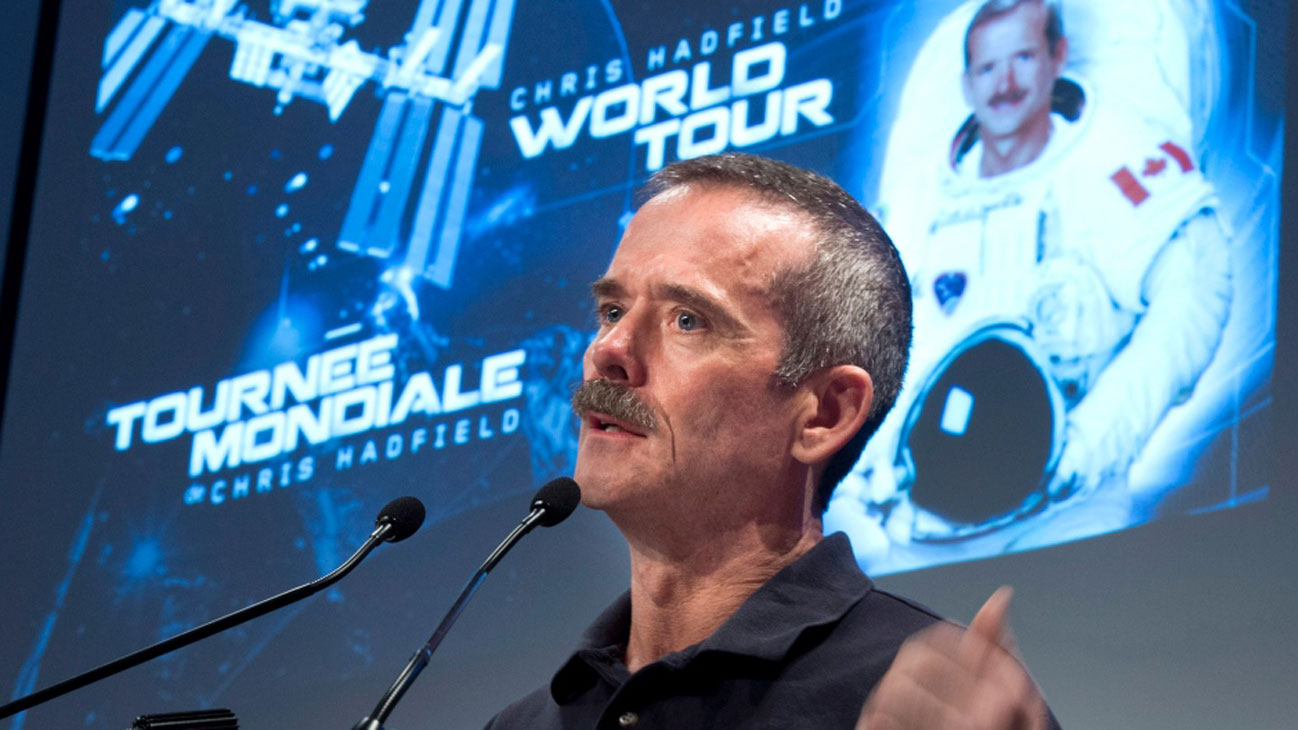From being the first Canadian to walk in space to serving as commander of the International Space Station and making the first music video shot in space, Col. Chris Hadfield has had a stellar career. In his new book, An Astronaut’s Guide to Life on Earth, the retired astronaut gives his view on what success at work really means:
Hearing astronaut Chris Hadfield talk about what going to space taught him, was one of those turn-off-the-car-engine, park and listen moments.
So I did.
Lessons from his new book, An Astronaut’s Guide to Life On Earth are so inspiring that it’s hard to decide which one to tell you about. I settled on how preparing to fly around in space taught him to be excited to go to work every day — and for good reason.
For one, too many people aren’t excited about going to work.
They’re frustrated, thinking, “I should be doing more. I should be getting better projects or more recognition.”
Many younger, inexperienced workers think they should be moving up the ladder faster. They expect that they should be directors of their departments or news anchors at their TV stations.
Every dreary, repetitive duty is about getting there.
But Hadfield, who logged nearly 4,000 hours in space and recently spent 144 days as commander of the International Space Station, has a different take on success.
Of course, when he was young, he “dreamed of blasting off in a blaze of glory to explore the universe, not sitting in a classroom studying orbital mechanics in Russian.”
Turns out not all is glamorous and exciting in a day in the life of an astronaut.
“If the only thing you really enjoyed was whipping around Earth in a spaceship, you’d hate being an astronaut,” Hadfield says. “You can’t view training solely as a stepping stone to something loftier. It’s got to be an end in itself.”
You train for years before you’re assigned to a space mission.
You practice tricky, repetitive tasks and highly challenging ones to the point of exhaustion. You learn new skills and help other astronauts get ready for flights.
If you viewed all this as a dreary chore, “not only would you be unhappy every day, but your sense of self-worth and professional purpose would be shattered if you were scrubbed from a mission — or never got one,” he says.
Some astronauts don’t. They train and train and never leave Earth.
“I took this job knowing that I might be one of them,” Hadfield says.
You can be disqualified because of temperament or minor health problems. A mission may require skills you don’t have.
Crews in space for months need to be able to perform basic surgery and dentistry, program a computer, rewire electrical panels, conduct a press conference and get along well with colleagues 24/7 in a confined space.
“Because I didn’t hang everything — my sense of self-worth, my happiness, my professional identify — on space flight, I was excited to go to work every single day,” he says.
What he called his “pessimistic” view of his own prospects helped him love his job and had positive effects on his career.
“I love learning new things,” Hadfield says. “I volunteered for a lot of extra classes, which bulked up my qualifications, which in turn increased my opportunities at NASA.”
Success for Hadfield was never about “lifting off in a rocket” although it felt like a great achievement.
“Success is feeling good about the work you do through the long, unheralded journey that may or may not wind up at the launch pad,” he says. “I never viewed training as some onerous duty I had to carry out while praying fervently for another space mission.”
Because ultimately, “I don’t determine whether I arrive at the desired professional destination,” Hadfield says. “Too many variables are out of my control. There’s really just one thing I can control: my attitude during the journey.”
Here on earth, many variables are out of your control, too, but not your attitude. And that’s an important lesson to remember at any point in your career.
Looking back at his life as an astronaut, Hadfield says his job was not about flying around in space: “It was really about making the most of my time here on Earth.”

